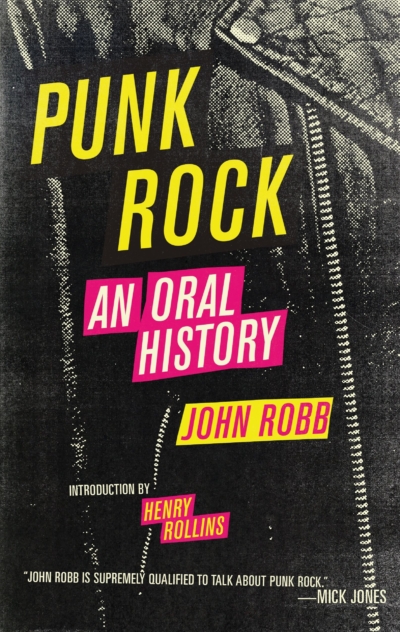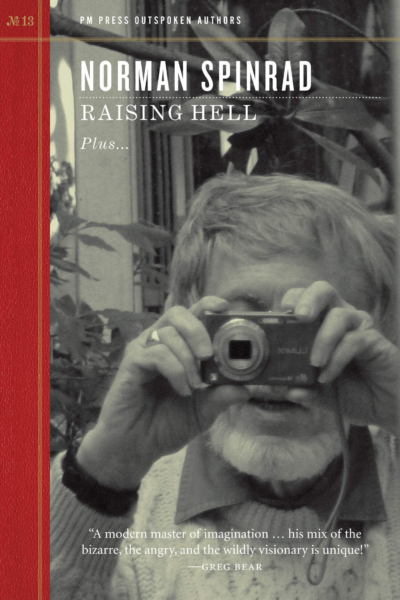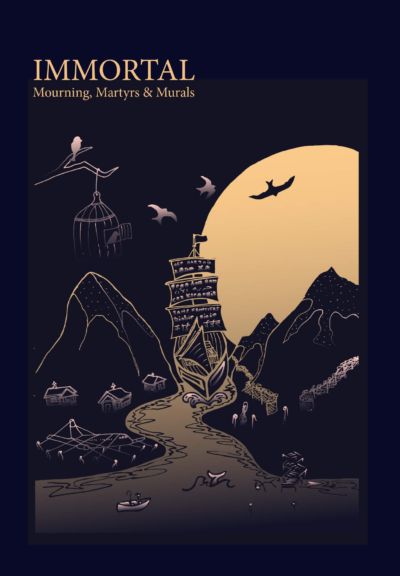Book Subjects
Authors/Contributors/Co-publishers
@owswills
Active Distribution
Alec Dunn
Amanda Priebe
Andrej Grubacic
Black Lodge Press
Common Notions
CrimethInc
Emma Goldman
Eric Drooker
Freedom Press
Gabriel Kuhn
Gary Phillips
Iain McIntyre
Iain McKay
James Kelman
John Holloway
John Robb
Josh MacPhee
Kairos
Kenneth Wishnia
Kersplebedeb
Made in the Ugly Kingdom
Marge Piercy
Matt Meyer
Michael Moorcock
N.O. Bonzo
Nick Blinko
Noam Chomsky
Outspoken Authors
Paul Buhle
Peter Kropotkin
PM Press
prole.info
Reach And Teach
Roger Peet
Silvia Federici
Simon Springer
Staughton Lynd
Switchblade
TooSphexy
union made
Ursula K. Le Guin
welsh independence
Working Class History
Recently Viewed Products
-
 The Prisoner's Herbal
£5.00
The Prisoner's Herbal
£5.00
-
 Chav Solidarity
£10.00
Chav Solidarity
£10.00
-
 Damnificados
£14.99
Damnificados
£14.99
-
 Sticker: Scotland isn't England
£0.15 – £5.00Price range: £0.15 through £5.00
Sticker: Scotland isn't England
£0.15 – £5.00Price range: £0.15 through £5.00
-
 Sticker: Schrödinger's Cymru
£0.15 – £5.00Price range: £0.15 through £5.00
Sticker: Schrödinger's Cymru
£0.15 – £5.00Price range: £0.15 through £5.00
-
 Punk Rock: An Oral History
£17.99
Punk Rock: An Oral History
£17.99
-
 Fag Hag
Fag Hag
£16.99Original price was: £16.99.£12.34Current price is: £12.34. -
 Red House
£14.99
Red House
£14.99
-
 Raising Hell
£10.99
Raising Hell
£10.99
-
 Immortal
£8.00
Immortal
£8.00

Anarchist Critique of Radical Democracy
~Paperback, Anarchy, Books, commentary and opinion, Social MovementsThis book offers an original introduction to anarchism and explores the boundaries of democracy.
£15.99
In stock
In the spring of 2013, a wave of urban riots swept across Sweden after police shot an elderly man in his own home. When community residents from his marginalized city-district demanded an official apology, they were ignored. The anti-police insurgences that followed addressed deep problems of the Swedish welfare state, and the official responses revealed glitches built into democracy itself.
In this updated edition of Anarchist Critique of Radical Democracy: The Impossible Argument, sociologist and historian Markus Lundström explores the boundaries of Swedish democracy. He probes in-depth interviews with community residents to explain how the 2013 riots intensified a profound democratic conflict: the social divide between the governors and the governed. Resistance to this divide is then traced through the defiance of governance and approaches to democracy in the history of anarchist thought.
This book offers an original introduction to anarchism. It relates the diversity of anarchist thought to anti-police riots and the radicalization of democracy.
Book details:
Author: Markus Lundström
Series: PM Press
ISBN: 9781629639987
Published: 01/24/23
Format: Paperback
Size: 6×9
Pages: 128
Subjects: Anarchism, Democracy
Praise
“The very best and most fruitful interrogations of political life often come from a deep and scrupulous plunge into a single event. So it is with Markus Lundström’s brilliant analysis of the battle in the streets of Husby in 2013. The result is a subtle, philosophically informed, and original understanding of the possibilities for enacting the promise of anarchism.”
—James C. Scott, author of The Art of Not Being Governed and Seeing Like a State
“This is movement-based theorizing at its best. Lundström offers a compelling genealogy that details how anarchism might radicalize democracy, or might have to move entirely beyond it. This is an important book for those wondering what comes next, after alterglobalization, after Occupy, for activists in Europe and North America.”
—Richard Day, author of Gramsci Is Dead
“This book takes seriously tensions within anarchism between making democracy more participatory versus making a more radical arrangement beyond democracy. Lundström exemplifies these tensions and appeals to a variety of anarchist writers for the theoretical tools to think through this tension productively.”
—Kathy Ferguson, author of Emma Goldman: Political Thinking in the Streets
“Advancing on the anarchist tradition, Lundström’s argument is timely, compelling, and deeply grounded in the collective experience of radical democratic contestation. This book deserves wide attention from scholars and activists alike.”
—Uri Gordon, author of Anarchy Alive!
“Lundström’s comprehensive, accessible and inclusive examination of anarchist thought defends an approach to democracy that combines uncompromising critique with a conception of anarchising change.”
—Ruth Kinna, author of Anarchism: A Beginner’s Guide
“This book offers a powerful critical inquiry into the relationship between anarchism and democracy. Lundström traces a genealogy of critique that sheds new light on the conflict at the heart of democracy and its imperative to govern. Anarchism, he contends, must be understood as elsewhere to such appeals to authority. In placing anarchism outside of these bounds, Lundström compellingly argues that we must move beyond the enchanting discourse of democracy, even in its radicalized form, to accept anarchism on its own terms.”
—Simon Springer, author of Fuck Neoliberalism: Translating Resistance
“Lundström convincingly argues that the aporias of democracy are best explored within the anarchist tradition, which has always had an ambivalent attitude to democracy: what he calls the Impossible Argument. In drawing on the theoretical resources of nineteenth and twentieth century anarchism, as well as empirical research from the site of contemporary struggles against the state, Lundström effectively illustrates the central tensions of democracy, developing from this new ways of thinking about radical democracy in the twenty first century.”
—Saul Newman, author of Postanarchism
“This book addresses the confusions and ambiguities about the values that we claim for our collective lives when we employ the term ‘democracy.’ Never has this been a more urgent task as the world accelerates into social, economic, and environmental chaos, apparently regardless of the will of populations living in proclaimed democracies. How can we understand and move beyond these experiences of ‘deprived political influence’? Lundstrom employs insights developed by anarchist writers and activists, particularly concerning domination, resistance, and conflict, in order to offer some clarity about these experiences. In this book, he helps us to think beyond the boundaries of the democratic tradition (where necessary) so that we can decide for ourselves which ways of life are possible, and which we would like to be made impossible.”
—Carissa Honeywell, Sheffield Hallam University, author of Anarchism
“With admirable clarity and precision, Markus Lundström outlines the key ideas of anarchism and uses them as a lens through which to analyse popular struggle. By pivoting his argument on the notion of the impossible, he explores the inherent tensions at the heart of democracy. This little book is a great introduction to anarchist thinking about politics and a powerful examination of popular dissent.”
—Iwona Janicka, Aarhus University, author of Theorizing Contemporary Anarchism: Solidarity, Mimesis and Radical Social Change
“In a nuanced, incisive, and admirably inclusive account of classical and contemporary anarchist thought, Lundstrom makes the impossible argument plausible. The critique of repressive and punitive authority must be in productive dialogue with the struggle to build non-hierarchical democratic relations if we are to sustainably change what ‘democracy’ looks like. Radical democratic thinking and action is vital in confronting the challenges of our times—the undermining of extractive and exploitative relations and the promotion of flourishing for all communities, human and not.”
—Erika Cudworth, coauthor of The Emancipatory Project of Posthumanism
About the Author
Markus Lundström is a political sociologist focused on anarchist, fascist, and social movement studies. He is the author of The Making of Resistance: Brazil’s Landless Movement and Narrative Enactment (Springer, 2017) and coeditor of Nordic Fascism: Fragments of an Entangled History (Routledge, 2022).
Related products
Abe in Arms
Books, Fiction, Young Adult Fiction £13.99“We Called Each Other Comrade”
Books, History £19.99A Line in the Tar Sands: Struggles for Environmental Justice
Activism, Books, Environment & Nature £21.99Against Urbanism
Books, Cities: Architecture & Urbanism £14.99